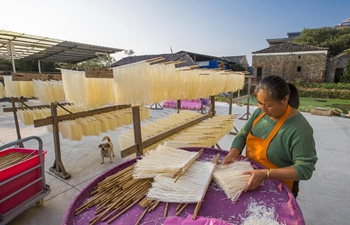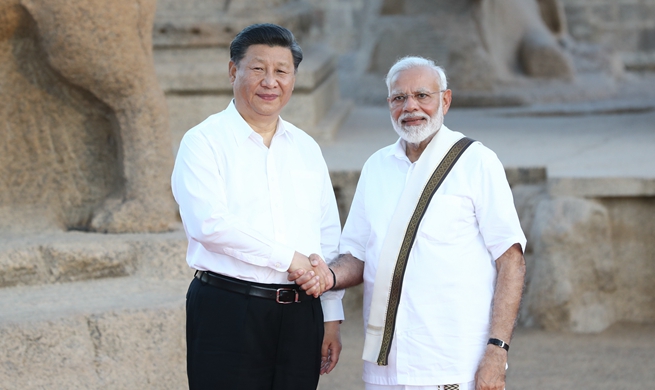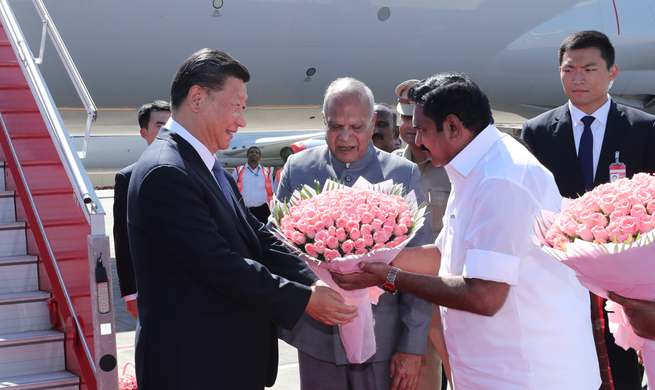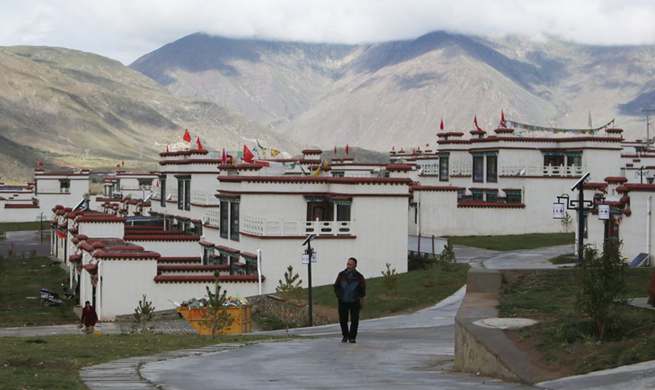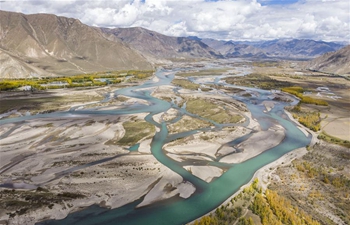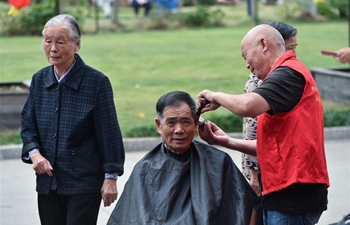TUNIS, Oct. 12 (Xinhua) -- Nabil Karoui, leader of Tunisian second largest party Heart of Tunisia and a media mogul who was released from imprisonment only four days before the presidential election, will face off Kais Saied, an independent presidential candidate and a constitutional professor, in the second round of the presidential election to be held on Oct. 13.
This will be the second free presidential election in the North Africa country following the one held in December 2014, in which Beji Caid Essebsi, the former president who passed away on July 25 at the age of 92, was elected in the second round.
A few hours after the death of Essebsi, the Independent High Authority for Elections (ISIE) announced that the first round of the presidential election will be held on Sept. 15.
"And in case that none of the candidates obtains the absolute majority of votes in the first round, a second round will be held within two weeks of the announcement of the final results of the first round," said the ISIE.
At that moment, Tunisian Parliament Speaker Mohamed Ennaceur was sworn in as acting president for a period of 45 days and a maximum of 90 days.
A total of 26 candidates, including two females, took part in the first round of the presidential election.
Most of them, except Karoui, debated on TV, elaborating their political plans to the public for the first time in Tunisia's history, which were transmitted by 11 television channels and more than 20 radio stations.
Karoui was arrested on Aug. 23 for suspected involvement in money laundering and tax evasion upon a report that dates back to 2016.
The Court of Cassation in Tunis on Oct. 9 ordered the release of Karoui.
According to official results released by ISIE on Sept. 17, Saied led the first round of the presidential election by winning 18.4 percent of the votes, followed by Karoui with 15.58 percent.
The Islamist candidate Abdelfattah Mourou, incumbent interim speaker of the parliament, ranked third with 434,530 votes. The resigning Defense Minister Abdelkarim Zbidi came fourth with 10.73 percent of the votes.
Youssef Chahed, incumbent prime minister and leader of Tahya Tounes party, received only 7.38 percent of all the votes, coming in the fifth place.
On Sept. 15, only about 3 million out of more than 7 million voters casted their votes, a remarkable low voter turn-out, showing people's dissatisfaction and disappointment towards the current policies, according to local media.
Tunisia's 2011 revolution overthrew the country's longtime strongman Zine el-Abidine Ben Ali, and ignited a string of uprisings across the Middle East that became known as the Arab Spring.
However, eight years have passed, and the governments changed for seven times, the unemployment rate of the young people in Tunisia still stood at 34 percent last year, and the overall unemployment rate is 15 percent, which is far from satisfactory.
Whoever to become the new president will deal with the long-lasting challenge of Tunisia's floundering economy and low purchase power, which the Enbahdha movement and the Nidaa Tounes party have not succeeded in solving.
